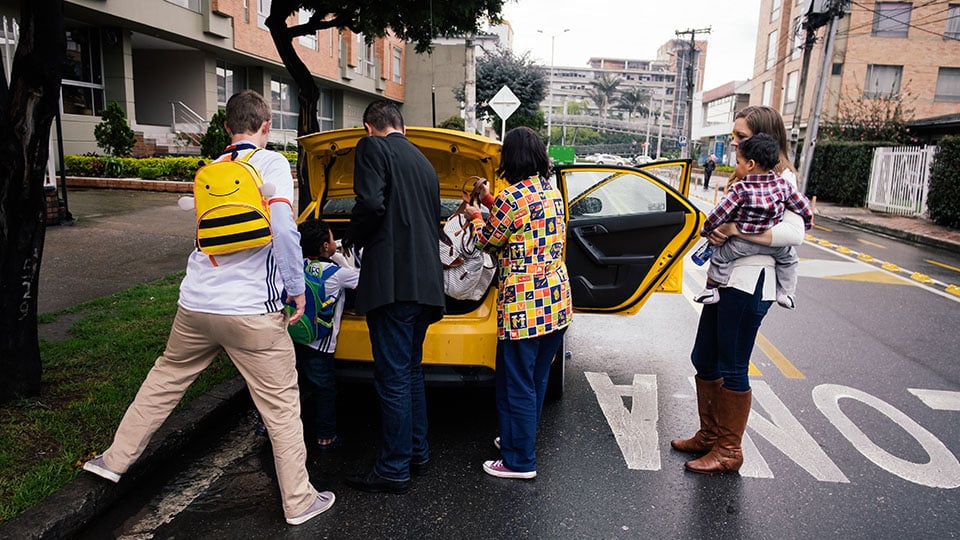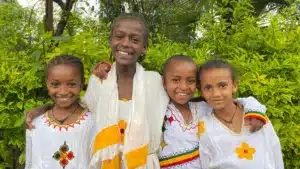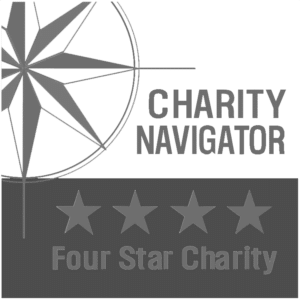
There are millions of children around the world in need of their forever family. Some have been waiting for years to find them. Families with adoption on their hearts recognize that need and feel called to welcome a child into their family, but many are stunned to learn that international adoption costs upward of $25,000. If the need is great and families are open to meeting that need, aren’t such high costs hindering efforts to curtail the orphan crisis?
In the spirit of transparency, let’s break down the costs of international adoption to unveil some of the steps and stakeholders involved.
Agency Fees: $17,900
Like any organization that provides services, adoption agencies charge fees. These fees cover costs such as licensing and accreditations, personnel, operations, communications, and insurance.
AGCI’s agency fees are as follows:
- Application: $300
- U.S. Agency: $17,600
Home Study: Varies
By law, all international adoptions in the U.S. require a home study—a screening of a family and their home prior to an adoption to ensure that the environment is suitable for a child and determine the best match for the family and the child. During this assessment, an adoption professional travels to a family’s home to discuss their personal history, family interests, lifestyle, childcare experiences, and strengths and skills in meeting a child’s needs. Apart from interviews with everyone in the home, home studies include state and federal background checks, and financial and medical assessments. This very important part of the adoption process safeguards the interests of the child and protects the family from an adoption for which they’re ill-equipped.
The cost for a home study varies by home study agency.
Post-Adoption Reports: Varies
Countries, states, and agencies mandate post-adoption reports once a child arrives home. The number and frequency of these reports depends on the child’s country of origin. The purpose of them is to provide authorities assurance that the child is receiving adequate care. They generally cover the child’s development and progress adjusting to their new life and family. For these reports, an adoption professional may visit the family’s home to assess how the child’s physical and emotional needs are being met. Some countries also require these reports to include how the family is encouraging the child to embrace their cultural heritage. These reports are important not only to safeguard the child’s interests but to allow countries and agencies to evaluate the success of adoption programs. They also provide families touchpoints to ask questions or seek advice post-adoption from an adoption professional.
The cost of post-adoption reports varies by home study agency.
Country Fees: Varies
Each country sets its own international adoption fee. This fee covers legal and government expenses such as personnel, administration, communications, and accreditations. It also supports the country’s orphan care system including the costs of operating children’s homes, employing caregivers, and providing medical care. This fee allows countries to provide proper care for a child prior to adoption and is vital to ensuring the needs of children in care are being met.
The fees in countries where AGCI facilitates adoptions are as follows:
- Bulgaria: $17,300
- Burundi: $16,000
- China: $12,100
- Colombia: $16,655
- Costa Rica: $12,670
- Ecuador: $15,175
- Ghana: $17,500
- Haiti: $22,280
- Philippines: $9,200
- South Africa: $7,500
Third Party Fees: On average $5,000
Adoptive families can expect the costs of notary services, FBI fingerprinting, immigration paperwork, document translation, accreditation monitoring and oversight, etc., to average $5,000. The total differs on a case-by-case basis.
Travel Fees: $3,000-15,000
International adoptions require that families travel to meet their child and bring them home. Some countries only require one trip while others require two. The duration of the trip(s) varies by country. Travel expenses are of course influenced by the duration of the trip but also the location and currency exchange rate.
Travel requirements in countries where AGCI facilitates adoptions are as follows:
- Bulgaria: two trips, 5-7 days, and 11 days
- Burundi: one trip, 3+ weeks
- China: one trip, 12-14 days
- Colombia: one trip, 5-7 weeks
- Costa Rica: one trip. 6-7 weeks
- Ecuador: one trip, 8-10 weeks
- Ghana: 11-18+ weeks
- Haiti: two trips, 2 weeks-3 months (virtual socialization), and 1-5 days
- Philippines: one trip, 5-7 days
- South Africa: one trip, 11-17 weeks
Total Cost of AGCI’s International Adoption Programs
One way to tally the cost of international adoption is to imagine everything a child has experienced before joining their forever family and what each step costs. First, a child entered care and an assessment took place to evaluate their well-being and determine their eligibility for adoption. Then, caregivers and adoption professionals advocated to find that child’s forever family. The family was evaluated to ensure they were the right match for the child, and then, one country processed emigration paperwork while another approved their immigration. The entire time, the child was housed, fed, and cared for, until finally, the family traveled to bring their child home. Even then, authorities followed up to ensure the child was doing well.
So, what do the fees for this process add up to? Excluding travel, home study, and other third-party expenses, the total costs of international adoption through AGCI are as follows:
- Bulgaria: $35,200
- Burundi: $36,600
- China: $30,000
- Colombia: $34,455
- Costa Rica: $30,570
- Ecuador: $33,075
- Ghana: $35,400
- Haiti: $40,180
- Philippines: $27,100
- South Africa: $25,400
Hopefully, this breakdown has provided clarity on cost, but it’s important to remember that families who feel called to adopt have many other aspects to consider. Each country, for example, determines who is eligible to adopt. Age, marriage, income, and other requirements vary. Some countries allow prospective adoptive families to choose their child’s gender, some require adoptive families to be open to special needs, and others require that families be able to travel for months. Adoptive families need to consider all these factors in choosing the program that’s right for them.













